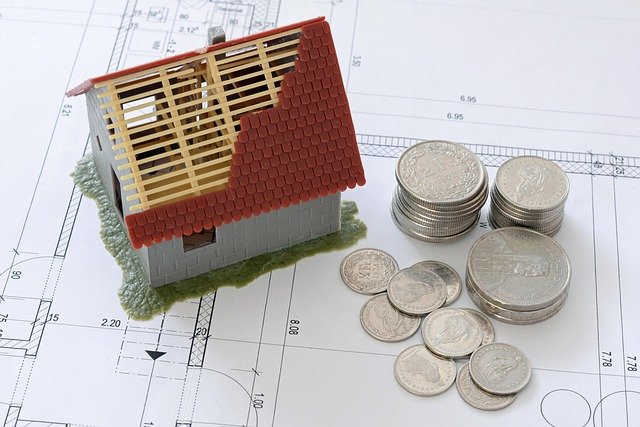Understanding Unsold Houses: Opportunities and Challenges in Real Estate
In the dynamic world of real estate, unsold houses present a unique phenomenon that affects both buyers and sellers. These properties, which remain on the market longer than expected, offer interesting opportunities while also posing challenges for various stakeholders in the housing sector. This article delves into the concept of unsold houses, exploring their impact on the real estate market and what they mean for potential buyers, sellers, and investors.

-
Market conditions: Economic downturns or shifts in local demographics can affect demand.
-
Property condition: Houses in need of significant repairs or updates may struggle to sell.
-
Location: Less desirable neighborhoods or areas with oversupply can lead to unsold inventory.
-
Seasonal fluctuations: Some markets experience slower periods during certain times of the year.
Understanding these factors is crucial for both buyers and sellers navigating the real estate landscape.
How do unsold houses impact the real estate market?
The presence of unsold houses can have several effects on the broader real estate market:
-
Price adjustments: Sellers may need to lower prices to attract buyers, potentially affecting overall market values.
-
Increased negotiation power for buyers: With more options available, buyers may have more leverage in negotiations.
-
Longer selling times: The average time on market for properties may increase.
-
Shifts in construction trends: Developers may adjust their strategies to avoid creating more unsold inventory.
-
Changes in lending practices: Financial institutions may become more cautious in approving mortgages for certain property types or locations.
These impacts can create both opportunities and challenges for various players in the real estate sector.
What opportunities do unsold houses present for buyers?
For potential homeowners and investors, unsold houses can offer several advantages:
-
Potential bargains: Sellers may be more willing to negotiate on price, especially if the property has been on the market for an extended period.
-
Less competition: With fewer buyers interested in these properties, there’s often less pressure to make quick decisions.
-
Opportunity for customization: Buyers may have more leverage to request repairs or updates before closing.
-
Diverse options: A higher inventory of unsold houses can provide a wider range of choices in terms of location, size, and style.
-
Investment potential: For those looking to flip properties or find rental opportunities, unsold houses can present attractive options.
What challenges do sellers face with unsold properties?
While unsold houses can be advantageous for buyers, they present several challenges for sellers:
-
Financial strain: Ongoing mortgage payments, property taxes, and maintenance costs can become burdensome.
-
Emotional stress: The uncertainty of when a property will sell can be mentally taxing for sellers.
-
Potential stigma: Properties that sit on the market for too long may be perceived as having hidden issues.
-
Market timing: Sellers may miss opportunities to purchase their next home while waiting for their current property to sell.
-
Decreased negotiating power: As time passes, sellers may feel pressured to accept lower offers.
How can real estate professionals help with unsold houses?
Real estate agents and other professionals play a crucial role in addressing the challenges of unsold houses:
-
Market analysis: Providing accurate pricing strategies based on current market conditions.
-
Property presentation: Offering staging and marketing advice to make properties more attractive to potential buyers.
-
Targeted marketing: Utilizing various channels to reach the right audience for specific properties.
-
Negotiation expertise: Helping sellers navigate offers and counteroffers effectively.
-
Network utilization: Leveraging professional connections to find potential buyers or alternative selling strategies.
What strategies can be employed to sell challenging properties?
When dealing with hard-to-sell houses, several strategies can be considered:
-
Price adjustments: Realigning the asking price with market realities.
-
Property improvements: Making strategic updates or repairs to increase appeal.
-
Flexible terms: Offering lease-to-own options or seller financing.
-
Incentives: Providing closing cost assistance or including desirable items with the sale.
-
Alternative uses: Exploring options like converting the property into a rental or considering commercial use if zoning allows.
| Strategy | Potential Impact | Considerations |
|---|---|---|
| Price Reduction | Can attract more buyers | May result in lower profit |
| Property Updates | Improves appeal | Requires upfront investment |
| Flexible Financing | Expands buyer pool | May involve longer-term commitment |
| Rental Conversion | Generates income | Changes seller’s role to landlord |
| Commercial Conversion | Opens new market | Subject to zoning regulations |
Prices, rates, or cost estimates mentioned in this article are based on the latest available information but may change over time. Independent research is advised before making financial decisions.
In conclusion, unsold houses are a complex aspect of the real estate market that presents both challenges and opportunities. By understanding the factors contributing to this phenomenon and the strategies available to address it, buyers, sellers, and real estate professionals can navigate this landscape more effectively. Whether you’re looking to purchase a home, sell a property that’s been on the market for a while, or invest in real estate, considering the dynamics of unsold houses can help inform your decisions and potentially lead to favorable outcomes in the housing market.






